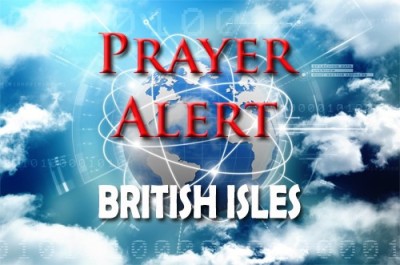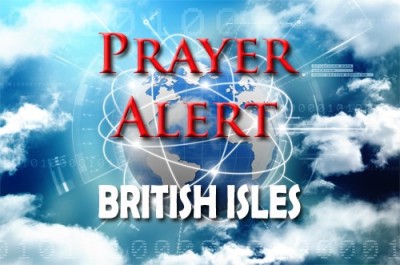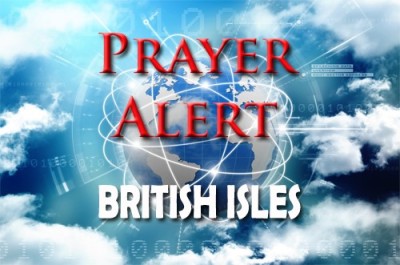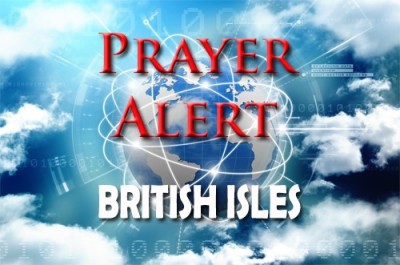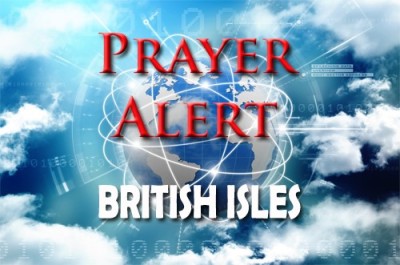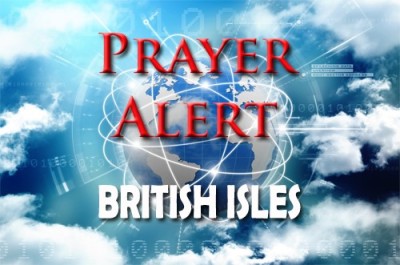NHS under huge strain from spike in ‘super flu’
12 Dec 2025Hospitalisations for influenza in England have surged by more than 50% in a week, with NHS leaders warning that the current ‘super flu’ wave shows no signs of peaking. An average of 2,660 patients per day were admitted with flu up to 7 December, a figure NHS England says is still rising and could exceed 5,000 by the 14th - equivalent to filling three hospitals. Children aged five to 14 currently have the highest positivity rates, while the sickest patients tend to be adults over 75 and children under five. Experts attribute the unusually early and severe spike to a mutated strain of H3N2, meaning population immunity may be lower than usual. Hospitalisations for norovirus are also increasing, adding further pressure as the NHS faces winter strain and the possibility of a resident doctors’ strike. Leaders have urged the British Medical Association to accept the Government’s offer and avoid additional disruption during an already critical period.
X Factor finalist discovers the joy of faith
11 Dec 2025Singer-songwriter Talia Dean, once an X Factor finalist, discovered that fame brought none of the fulfilment she longed for. Though achieving what many dream of, she found herself exhausted, unwell, and deeply empty — 'an endless search to fill a void you can never fill with claps and cheers or money.' On New Year’s Eve 2023, after years of feeling low and searching for 'something,' she wandered into a churchyard and desperately prayed for a sign of warmth or love. God answered through the unexpected kindness of strangers - the vicar’s wife and daughters, who invited her in, prayed for her, and, as she describes it, filled the kitchen with heavenly light. Later that day, she asked the Lord for one more sign, and sunlight broke through the grey rainclouds into her room. Talia has now joyfully returned to her Catholic roots, creating worship music, including her BBC-performed song 'I will praise Your name’. She longs for others to discover faith, direction, and the soul-filling joy she has found in Christ.
Texas governor Greg Abbott has announced that over 500 high schools across the state now host chapters of Turning Point USA’s Club America programme, a conservative student movement designed to promote constitutional principles, traditional values, and civic responsibility among young people. At a press conference, he highlighted the growing need for such programmes in shaping future leaders. He honoured the legacy of Charlie Kirk, TPUSA’s founder, who was assassinated last September, recognising his impact in inspiring students to stand for moral clarity and America’s founding ideals. Club America now includes more than 1,200 chapters nationwide, teaching principles such as fiscal responsibility, free markets, and limited government. Several other states, including Florida and Oklahoma, have pledged support for students wishing to establish their own chapters.
£3.5bn plan to halve homelessness unveiled
11 Dec 2025The Government has unveiled a £3.5bn national plan to end homelessness, aiming to halve long-term rough sleeping by 2029/30. Housing secretary Steve Reed described homelessness as 'one of the most profound challenges we face’, promising a future where it is 'rare, brief, and not repeated’. The strategy includes a new duty requiring prisons, hospitals, and social care to work together, preventing people from being discharged straight onto the streets. It also pledges to halve first-night homelessness among prison leavers, reduce the number of families living in B&B accommodation, and direct £50m to councils to create tailored action plans. A £124m supported housing scheme is expected to help 2,500 people off the streets. However, charities warn the plan falls short, noting that only £100m of the funding is new and highlighting major gaps, particularly around prevention, frozen housing benefit, refugee support, and the lack of available social homes. MPs and homelessness organisations say the strategy appears rushed and insufficient to meet the scale of need, with record numbers of people (especially children) expected to be homeless this Christmas.
Rachel Reeves has condemned a series of Treasury leaks ahead of her recent Budget, calling them 'inaccurate, damaging, and unacceptable’. She insisted the disclosure suggesting that she had abandoned plans for an income tax rise was not an authorised briefing but a leak, which undermined confidence in her commitment to restoring fiscal 'headroom.' Reeves confirmed that a full inquiry had begun, alongside a review of Treasury security processes to prevent further breaches. She expressed frustration at the volume of speculation surrounding the Budget, stressing the need to restore integrity to fiscal announcements. MPs also questioned her on her decision to freeze income tax thresholds for three more years. She denied breaking Labour’s manifesto pledge, arguing that the promise referred specifically to tax rates, while acknowledging that the freeze would mean working people paying more. She said she and the prime minister had jointly decided the measure, rejecting suggestions she had been overruled.
General Sir Gwyn Jenkins, head of the Royal Navy, has issued a stark warning that the UK risks losing its long-held maritime advantage in the North Atlantic unless defence funding increases urgently. He said Britain is 'holding on, but not by much’, as Russia invests billions into rebuilding its naval power - especially its Northern Fleet - even while fighting in Ukraine. Russian activity in the North Atlantic has risen by 30% in two years, including incidents such as the Yantar spy ship shining a laser at RAF pilots. Jenkins warned that the greater threat lies beneath the surface, where vital undersea cables and energy pipelines are vulnerable to hostile interference. The Navy itself is facing severe strain: more vessels are tied up in port than operational, recruitment shortfalls are acute, and years of cuts and failed procurement programmes have left the fleet hollowed out. While avoiding direct criticism of the Government, Jenkins highlighted the widening gap between ministerial promises and available funding. He outlined a vision for a modernised 'hybrid navy', though it would not be fully ready until 2029 - a timeline some fear may be too slow given rising global threats.
John Wilson, 59, has been sentenced to three years for attempting to plant two crude pipe bombs on cars at the East Belfast GAA training grounds in August 2020. The devices, intended to intimidate members of the newly formed club, failed to detonate. The judge said the act involved the 'deliberate use of explosives to cause fear and distress' and was motivated by a sectarian aim to stop the public using the pitches. However, he ruled that the offence did not meet the threshold for terrorism charges. Wilson, who continues to deny all involvement, was arrested the day after anonymously calling police to report the devices. The court heard emotional testimony from a club founder who described the attack as 'beyond cruel’. The judge acknowledged Wilson’s good work history and family life but noted that the planning and intent behind the offence demonstrated clear determination. Wilson will serve half his sentence in custody and half on licence.
A major strike by resident doctors in England, due to begin on 17 December, may be averted after ministers offered the British Medical Association a new deal centred on expanding training opportunities rather than pay. The BMA has agreed to put the offer to members in an online survey closing on 15 December. If members support it, the five-day walkout could be cancelled. The proposal includes 4,000 additional specialist training posts by 2028, with 1,000 available next year, and measures to prioritise UK-trained doctors for competitive roles, as well as covering exam fees and other expenses. However, it contains no pay increase; health secretary Wes Streeting insisted that pay negotiations are closed following nearly 30% rises over three years. Criticising the BMA for not immediately suspending strike plans, he warned that hospitals must now begin cancelling appointments to prepare for potential disruption during a difficult winter. The BMA says strikes have forced government action but stresses the offer does not address long-term pay erosion. If members indicate the deal is insufficient, the strike will proceed.
